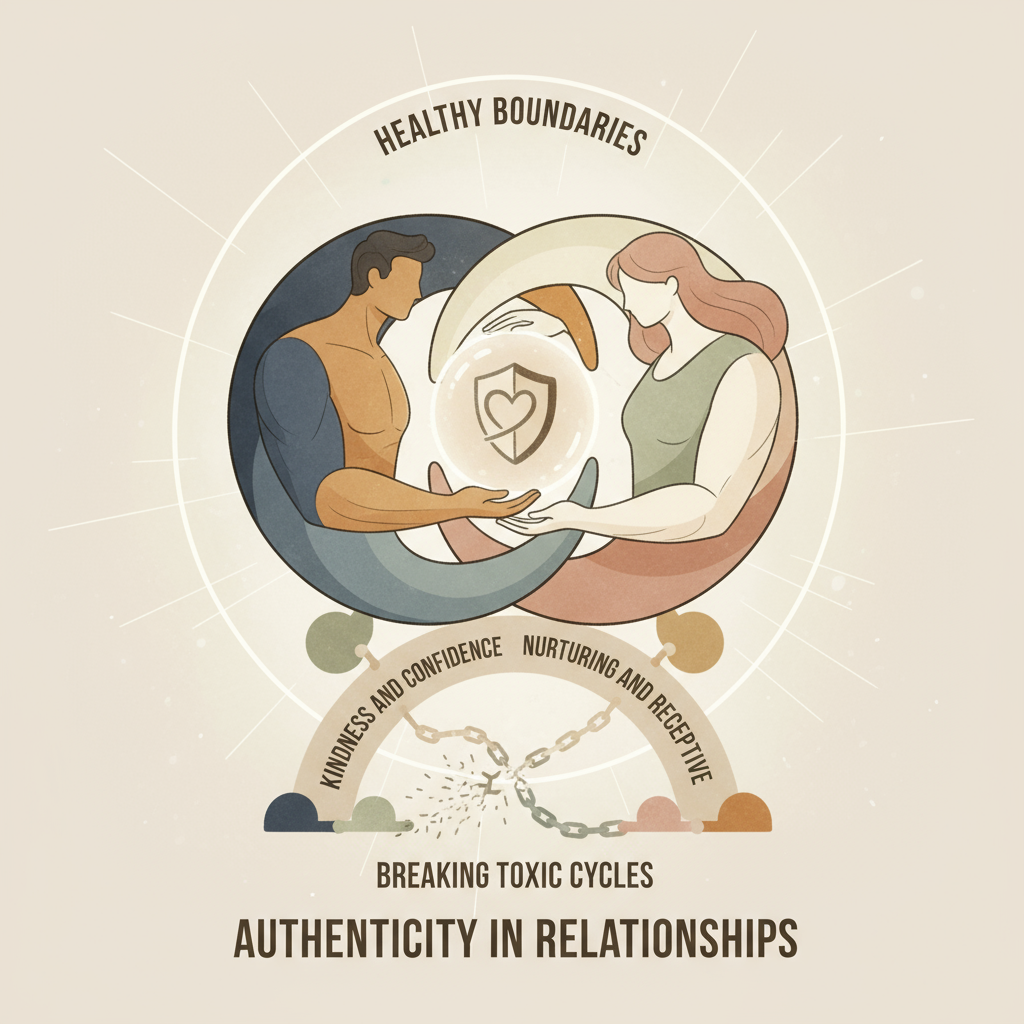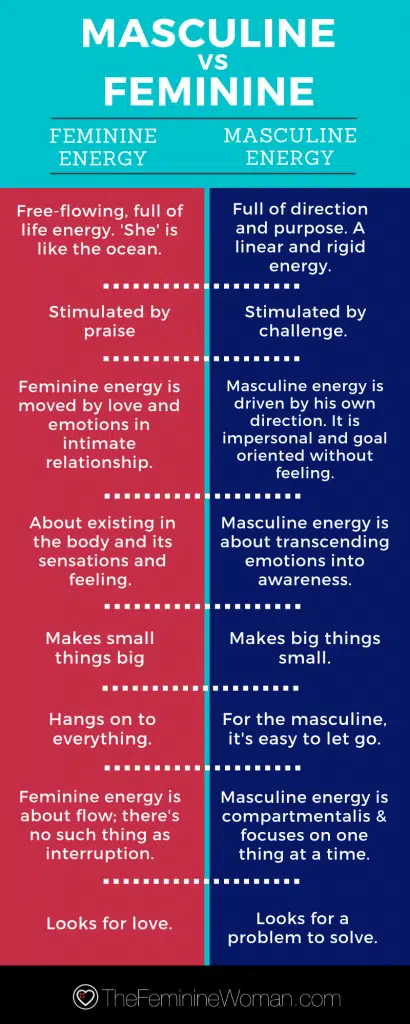
Understanding Attraction: Balancing Kindness, Confidence, and Relationship Energy
This article explores why kindness alone may not sustain romantic attraction, particularly in men labeled as "nice guys." It explains that excessive accommodating behavior without assertiveness or boundaries can reduce appeal, as it may signal a lack of self-respect or authenticity. Toxic relationship patterns, characterized by emotional highs and lows, can also distort attraction by making stable kindness seem less exciting due to dopamine-driven addiction to drama. Healthy attraction, the article suggests, thrives on the dynamic balance between masculine energy (confidence, assertiveness, presence) and feminine energy (nurturing, receptivity), creating a polarity that fuels connection. For men navigating modern dating, cultivating self-awareness, setting boundaries, and embracing authenticity alongside kindness are key to building fulfilling relationships.
Summary
Understanding Attraction: Beyond the Nice Guy Syndrome
In the realm of modern relationships, the concept of attraction often seems complex and multifaceted. Many men find themselves puzzled when their genuine kindness is not reciprocated with romantic interest, leading to discussions around the "nice guy syndrome." This article delves into why women might lose attraction to so-called 'nice guys', how toxic relationships can skew our perception of genuine kindness, and the role that masculine and feminine energies play in fostering healthy romantic attraction.
Key Takeaways:
- Kindness alone isn't enough; lack of assertiveness and boundaries can diminish attraction.
- Toxic relationships condition us to crave drama, making stable kindness less appealing.
- Attraction thrives on the polarity of energies, with confidence in men being crucial.
---
The Nice Guy Syndrome: More Than Just Kindness
The term "nice guy syndrome" refers to a behavioral pattern where men are overly accommodating, often neglecting their own needs in the process. While kindness is universally admired, the issue arises when this kindness is not balanced with personal assertiveness and boundaries.
The Psychological Perspective
From a psychological viewpoint, 'nice guys' often exhibit anxious attachment styles, where the fear of rejection or conflict leads to self-sacrifice. This can be perceived as a lack of self-respect or authenticity, which inadvertently reduces their attractiveness. Research in social psychology supports this, indicating that while kindness is attractive, a lack of personal space or self-respect can lead to perceptions of weakness or superficiality.
Cultural Impact
Culturally, the expectation for men to be assertive and decisive is still prevalent, though evolving. The 'nice guy' who lacks these traits might not align with traditional masculine ideals, which can impact romantic attraction. This isn't to say that kindness should be abandoned, but rather, it should be complemented with a sense of self and boundaries.
Toxic Relationships and the Dopamine Trap
Toxic relationships, characterized by manipulation, control, or abuse, create a cycle of emotional highs and lows that can become addictive. This dynamic often makes the calm and stable kindness of a 'nice guy' seem less stimulating.
The Neuroscience Behind Attraction
Neuroscientifically, toxic relationships can hijack the brain's reward system, leading to what's known as dopamine addiction. The intense emotional rollercoaster of a toxic relationship releases dopamine, conditioning individuals to seek out similar patterns in future relationships. This makes the steady, reliable kindness of a 'nice guy' feel dull in comparison, as it lacks the immediate, intense gratification of drama.
Breaking the Cycle
Recognizing this pattern is the first step towards change. Therapy, self-awareness, and understanding one's attachment style can help individuals break free from the allure of toxic dynamics, allowing them to appreciate and seek out healthier, kinder relationships.
The Role of Energy in Attraction
Healthy romantic attraction often relies on the dynamic interplay between masculine and feminine energies, which are not strictly gender-specific but culturally associated with certain traits.
Masculine Energy and Presence
Masculine energy, characterized by assertiveness, decisiveness, and protection, when balanced with kindness, enhances a man's attractiveness. This 'masculine presence' involves exuding confidence, calmness, and leadership, traits that are universally appealing in a partner. Studies in gender dynamics suggest that while these energies transcend gender, societal norms often dictate how they are expressed, influencing attraction patterns.
Feminine Energy and Complementarity
Feminine energy, with traits like nurturing, empathy, and receptivity, complements masculine energy in a relationship, creating a polarity that enhances attraction. This doesn't mean that one must adhere strictly to these roles, but rather, understanding and balancing these energies can lead to more fulfilling relationships.
Relationship Polarity
The concept of relationship polarity emphasizes that attraction thrives on the tension between these energies. A man who can balance kindness with confidence, and a partner who can appreciate this balance, often find a deeper connection. This balance isn't about adhering to outdated gender norms but about creating an energetic dance that fuels attraction and complementarity.
Navigating Modern Dating Struggles
Dating in today's world comes with its own set of challenges, from the influence of dating apps to changing relationship norms. Understanding these dynamics can help 'nice guys' navigate these waters more effectively.
Overcoming Dating Struggles
For men struggling with the 'nice guy' label, it's crucial to develop self-awareness, assertiveness, and to set healthy boundaries. Engaging in activities that boost confidence, like public speaking or leadership roles, can naturally enhance one's masculine presence. Additionally, embracing one's natural traits, while still being open to growth, can lead to more authentic connections.
The Importance of Authenticity
In all relationships, authenticity plays a key role. Being true to oneself, while still striving for personal growth, ensures that the attraction is based on genuine connection rather than a facade. This aligns with the concept of 'natur' or natural behavior, where spontaneity and authenticity foster organic growth in relationships.
---
Conclusion
Attraction in relationships is not just about being kind; it's about balancing kindness with personal strength, understanding the addictive nature of toxic dynamics, and embracing the energetic interplay between masculine and feminine traits. For men labeled as 'nice guys', developing a sense of self, assertiveness, and confidence can transform their dating experiences, making them more attractive partners in the complex dance of modern romance.

Frequently Asked Questions
Q: why women lose interest in nice guys
A: Women may lose interest in nice guys when they perceive them as lacking confidence, ambition, or passion, which are traits often associated with attraction. Sometimes, 'nice guys' can be seen as too agreeable or passive, leading to a lack of excitement or challenge in the relationship. Additionally, if kindness is mistaken for a lack of boundaries or self-respect, it may reduce attraction. However, this varies widely among individuals, as many women highly value genuine kindness and respect in a partner.
Q: what is the nice guy syndrome
A: Nice Guy Syndrome is a term used to describe men who believe that being overly nice, accommodating, and avoiding conflict will guarantee romantic success or approval. However, these feelings often mask underlying frustration and resentment when their efforts are not reciprocated as expected. This mindset can lead to entitlement, passive-aggressiveness, and difficulties in genuine relationship-building because it is based more on expectation than authentic connection.
Q: difference between masculine and feminine energy in relationships
A: Masculine and feminine energy in relationships refer to complementary qualities rather than gender. Masculine energy is often associated with traits like assertiveness, logic, protection, and direction, while feminine energy tends to embody emotional expression, intuition, nurturing, and receptivity. Both energies can be present in any person, and a balance between them helps create harmony, with masculine energy often driving action and feminine energy promoting connection and flow.
Q: effects of toxic masculinity on dating
A: Toxic masculinity can negatively impact dating by promoting harmful stereotypes such as suppressing emotions, avoiding vulnerability, and enforcing rigid gender roles. This often leads to poor communication, emotional disconnection, and unhealthy power dynamics in relationships. Additionally, it may pressure individuals to conform to unrealistic ideals of masculinity, hindering genuine connections and mutual respect between partners.
Q: how to be attractive as a nice guy
A: Being attractive as a nice guy involves combining kindness with confidence and authenticity. Focus on developing good communication skills, maintaining self-respect, and pursuing your own interests and passions. Show genuine empathy and respect toward others, but also set healthy boundaries to avoid being perceived as overly eager or insincere. Taking care of your appearance and body language can also boost your attractiveness, making you approachable and confident without compromising your niceness.
Key Entities
Robert Glover: Robert Glover is a psychotherapist known for his work on codependency and relationship healing, authoring the book 'No More Mr. Nice Guy.' He focuses on helping men overcome approval-seeking behaviors to build healthier relationships and personal boundaries.
David Deida: David Deida is an author and teacher specializing in spiritual growth and relationships, particularly masculine and feminine dynamics. His work explores intimate connection and sexual spirituality, offering guidance for deeper emotional and physical intimacy.
International Journal of Behavioral Research & Psychology: The International Journal of Behavioral Research & Psychology publishes scholarly articles on behavioral science and psychological research. It serves as a platform for studies that advance understanding of human behavior and mental processes.
External articles
- The Real Reason Women Lose Interest In The "Nice Guy"
- Romantic Attraction Is Created Between Highly Polarized ...
- 'Nice Guys' Kill Relationships & Masculinity
Related Articles
- Assessing Donald Trump's Prospects for the Nobel Peace Prize: Independence, Criteria, and Controversies
- Rising Interest in Norwegian Language and Culture Among Young Americans
- The Enduring Legacy of Norwegian Immigrants in the United States
YouTube Video
Title: Women CRAVE Emotionally TOXIC Men (DARK Female Nature TRUTHS)
Channel: Casey Zander
URL: https://www.youtube.com/watch?v=pwP9f79Zi4Q
Published: 2 years ago
Life